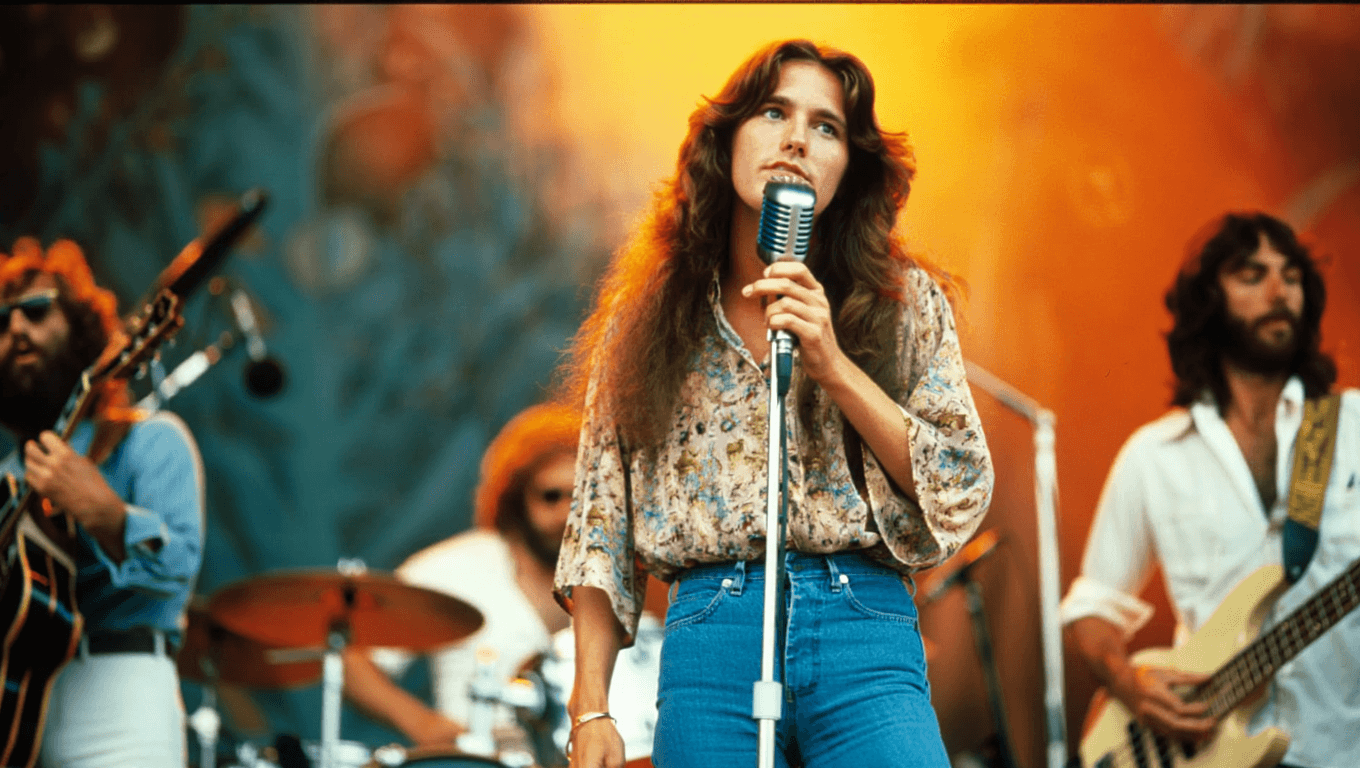Donna Jean Godchaux, the only female member of the Grateful Dead, died on Nov. 2, 2025. She was 78 years old. The legendary vocalist passed after a lengthy cancer battle at a hospice in Nashville.
Annual Subscriptions Save 20% – But Only for These 5 Services
OVID TV Shows Documentary Films Major Platforms Refuse to Stream
🔥 Quick Facts:
- Donna Jean passed away at Alive Hospice on Sunday, Nov. 2 from cancer.
- She was the sole female vocalist for the Grateful Dead from 1972 to 1979.
- Before the Dead, she sang on two #1 hits: “When a Man Loves a Woman” and “Suspicious Minds.”
- She was inducted into the Rock and Roll Hall of Fame in 1994.
- Donna continued touring with the Donna Jean Godchaux Band for decades after.
How a Session Singer from Alabama Found Her Place with Rock’s Most Iconic Band
Donna Jean was born in Florence, Alabama and grew up as a professional session singer in Muscle Shoals. During the 1960s, she sang backup on countless hits. Her voice graced songs by Elvis Presley, Percy Sledge, and Cher. She even appeared on songs by Duane Allman, Neil Diamond, and Boz Scaggs.
Paramount+ Streams Every Star Trek Episode Except These 12
Amazon Prime Student Cuts Streaming Costs in Half
In 1970, Donna moved to San Francisco where she met Keith Godchaux, a pianist. The couple married and changed the face of rock music. She famously walked up to Jerry Garcia after a concert and pitched him on the keyboardist. “I told Jerry that Keith needed to be in the band,” she recalled. Both joined 1971, launching one of the greatest musical partnerships in history.
“She was a sweet and warmly beautiful spirit. All those who knew her are united in loss.”
Her Voice Defined the Grateful Dead’s Golden Era
From 1972 through 1979, Donna Jean’s vocals became inseparable from the Dead’s sound. She sang on landmark albums like “Europe ’72”, “Wake of the Flood”, and “Terrapin Station.” Her voice appeared on legendary live recordings including the famous Cornell ’77 concert. She even toured Egypt with the band in 1978.
Donna transitioned from studio work to live performance, a major shift she handled with grace. “Everything was so loud onstage,” she admitted in interviews. The change from controlled studio environments pushed her artistically. Yet she remained a key vocal feature throughout the decade of transformation for the Dead.
Her time in the band also reflected the era’s darker elements. Touring with the Dead meant exposure to drugs and intense pressures. By the late 1970s, both she and Keith struggled with the lifestyle. Marital discord eventually led both to exit the band by mutual agreement in early 1979.
Donna Jean’s Impact Timeline
| Year | Milestone |
| 1960s | Session singer in Muscle Shoals, Alabama |
| 1970 | Married Keith Godchaux, moved to California |
| 1971–1972 | Joined the Grateful Dead as primary vocalist |
| 1972–1979 | Toured worldwide, recorded legendary albums |
| 1994 | Inducted into Rock and Roll Hall of Fame |
| 2016 | Inducted into Alabama Music Hall of Fame |
What Comes Next for Her Musical Legacy
- Her solo work and archived performances remain available on streaming platforms.
- The Grateful Dead will likely release tribute compilations in coming months.
- Fans are expected to share stories at Dead tribute concerts nationwide.
- More comprehensive biographies may emerge detailing her historic contributions.
- Her family is reportedly planning a private memorial service.
Why Does a Female Pioneer in Rock Music Matter Today?
Donna Jean’s story challenges the myth that female rockers didn’t exist in the 1970s. She wasn’t a sidekick or token addition. She was the engine of vocal power in one of America’s greatest bands. Women who sang in her era rarely received the recognition they deserved.
Her journey from Muscle Shoals to global concert halls broke barriers. She proved women belonged on stage with the biggest acts in rock. The Dead’s success depended partly on her voice. Yet history often sidelighted her contributions compared to male bandmates.
Today, young female musicians claim inspiration from her legacy. Her story shows that resilience and talent overcome institutional barriers. She survived personal struggles, battled expectations, and dedicated decades to music after the Dead.
Are you familiar with her earlier work before joining the Dead? Many fans miss her session recordings.
Sources
- Rolling Stone – Comprehensive obituary and biographical timeline
- Relix Magazine – Family statement and tribute article
- Wikipedia – Historical career details and discography

Daniel Harris is a specialist journalist focused on the crossroads of breaking news, extraordinary history, and enduring legends. With a background in historical research and storytelling, he blends timely reporting with timeless narratives, making complex events and ancient myths resonate with today’s readers. Daniel’s work often uncovers surprising links between present-day headlines and legendary tales, offering unique perspectives that captivate diverse audiences. Beyond reporting, he is passionate about preserving oral traditions and exploring how extraordinary stories continue to shape culture and identity.

